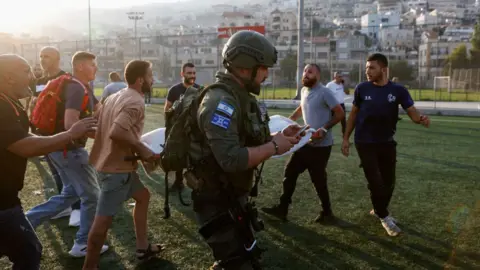Introduction
In a harrowing incident on a football pitch in Majdal Shams, a Druze town located in the Israeli-occupied Golan Heights, twelve young lives were tragically cut short by a rocket strike. The attack, which occurred while the victims were playing football, has cast a shadow over the region, sparking intense reactions and raising concerns about escalating tensions between Israel and Hezbollah.
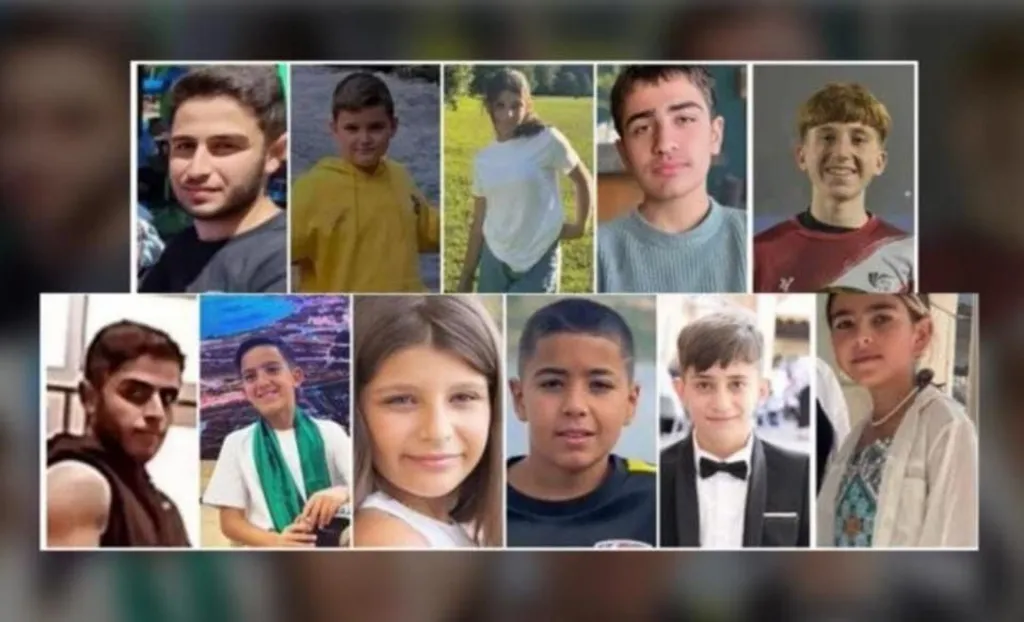
The Incident: A Day of Tragedy
On a Saturday that began like any other, the residents of Majdal Shams were confronted with an unspeakable tragedy. As children and young adults enjoyed a game of football, a rocket struck the pitch, killing twelve individuals. The victims, aged between 10 and 16, were identified by Israel’s foreign ministry, while the details of the twelfth casualty remain unclear. The immediate aftermath of the strike was chaotic, with verified footage capturing the frantic efforts of emergency responders and the sheer devastation faced by the community.
Majdal Shams, one of four Druze towns in the Golan Heights, has been deeply affected by this loss. The Druze, an Arabic-speaking religious and ethnic minority, make up about 25,000 people in this region. The attack has left the community in mourning and raised fears of further violence.
The Response: Israeli Retaliation and Hezbollah’s Denial
In the wake of the attack, the Israeli government swiftly attributed the rocket strike to Hezbollah, an Iran-backed militant group. The Israeli Defense Forces (IDF) launched retaliatory air strikes targeting seven Hezbollah positions deep within Lebanese territory. These strikes were aimed at what the IDF described as “terror targets,” including weapons caches and infrastructure used by Hezbollah. As of now, the impact of these strikes in terms of casualties remains unknown.
Hezbollah has strongly denied involvement in the Majdal Shams attack. The group’s spokesperson, Mohamad Afif, rejected the accusations and condemned the attribution of the attack to Hezbollah. This denial has been met with skepticism by Israeli officials, who have provided evidence suggesting that the rocket was an Iranian-made Falaq-1, a weapon allegedly owned exclusively by Hezbollah. Israeli officials, including IDF spokesperson Daniel Hagari, have accused Hezbollah of lying and attempting to evade responsibility.
The Broader Context: Rising Tensions and Potential for Escalation
The attack in Majdal Shams occurs against a backdrop of rising tensions between Israel and Hezbollah. The violence between the two parties had been sporadic but intensified following the Hamas attack on Israel on October 7. In response to the Hamas offensive, Israel launched a military campaign in Gaza, which has resulted in significant casualties and destruction.
Hezbollah’s support for Palestinians and its subsequent rocket fire at Israeli positions in solidarity with Gaza has exacerbated the situation. The Majdal Shams strike represents one of the deadliest incidents along Israel’s northern border since the recent outbreak of violence. The potential for this incident to trigger an all-out war between Israel and Hezbollah looms large, with both sides preparing for further conflict.
International Reactions: Condemnations and Warnings
The international community has reacted strongly to the escalation. Israeli Prime Minister Benjamin Netanyahu, who was visiting the United States at the time, cut his trip short and returned to Israel to address the situation. His statement vowed severe retaliation against Hezbollah, highlighting the escalating nature of the conflict.
Iran, a key ally of Hezbollah, has issued a warning to Israel, suggesting that further military actions in Lebanon could have “unforeseen consequences.” This warning reflects the broader geopolitical implications of the conflict and the potential for regional destabilization.
The United States has supported Israel’s right to defend itself while urging caution to prevent the conflict from spreading. US Secretary of State Antony Blinken confirmed that indications point to Hezbollah’s involvement in the attack but emphasized the importance of avoiding a broader conflict.
Lebanon’s government has condemned the attack and called for an immediate cessation of hostilities. The Lebanese Foreign Minister, Abdallah Bouhabib, expressed doubt that Hezbollah was responsible, suggesting it could have been a mistake or a misjudgment. He has urged Hezbollah not to retaliate at this time, reflecting the complex and delicate nature of regional politics.
The United Nations has also weighed in, emphasizing the need for “maximum restraint” from all parties involved. The UN’s warning highlights the potential for the conflict to escalate and engulf the entire region in a catastrophe.
The Impact on the Druze Community and the Golan Heights
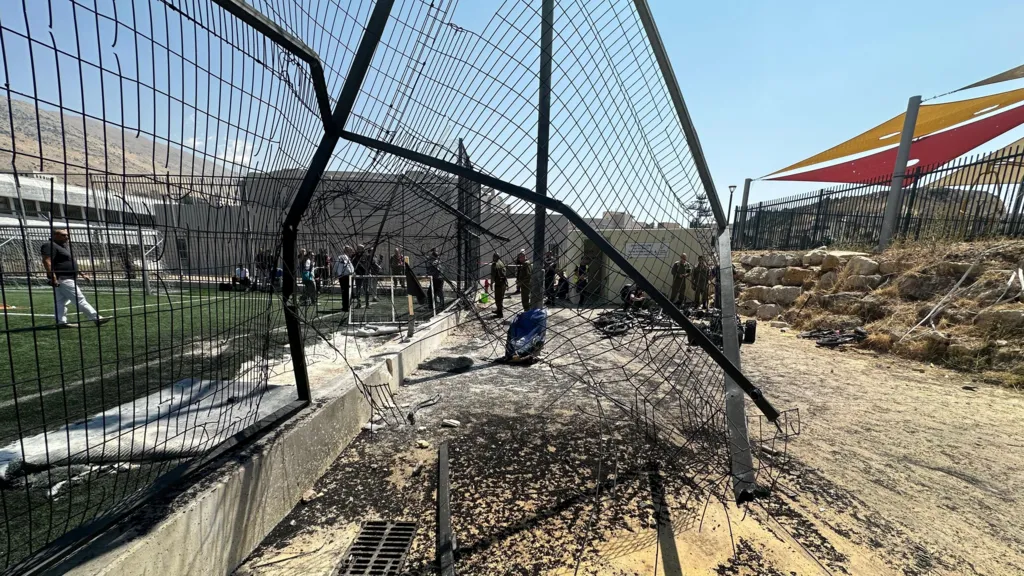
The Druze community in Majdal Shams and the surrounding Golan Heights is grappling with the impact of the attack. The Druze, who live in northern Israel, Lebanon, Jordan, and Syria, have a unique status in the region. In Israel, they hold full citizenship rights and make up about 1.5% of the population. Those in the Golan Heights were offered Israeli citizenship when the region was annexed from Syria in 1981, though not all accepted.
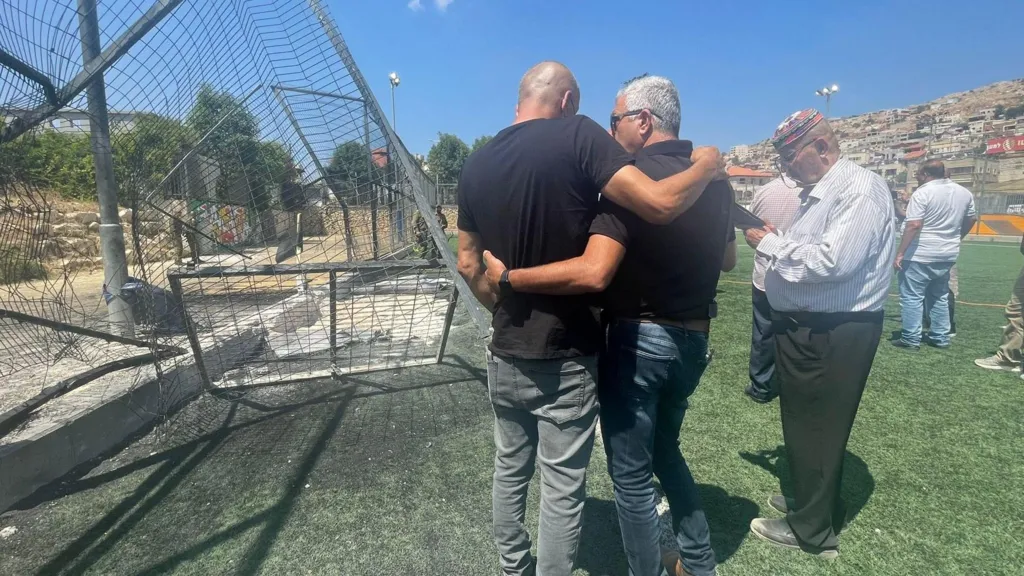
The Druze in the Golan Heights face specific challenges, including mandatory military service for male Druze and limited political representation for those who did not accept Israeli citizenship. The attack on Majdal Shams underscores the vulnerability of this community amid the broader regional conflict.
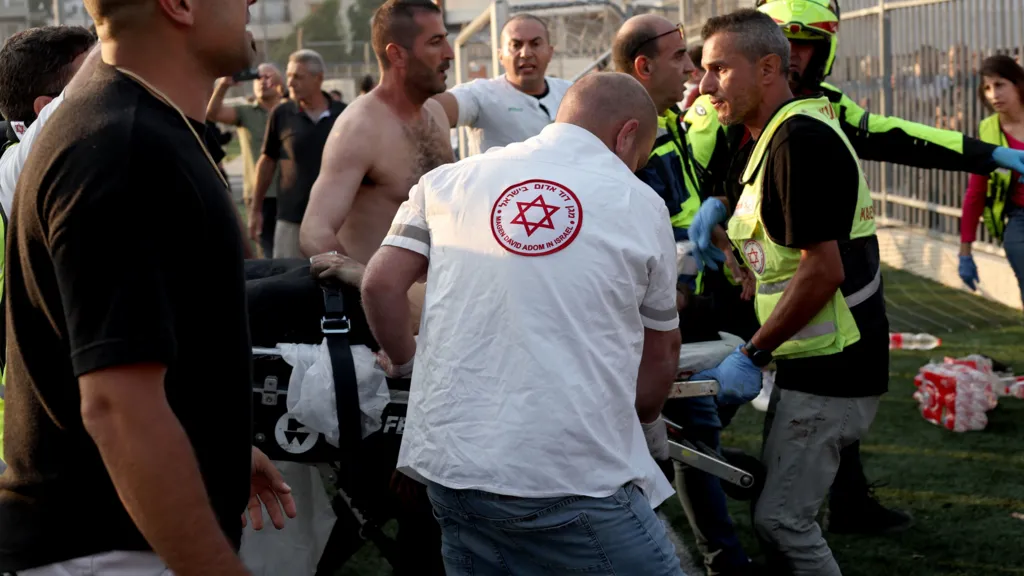
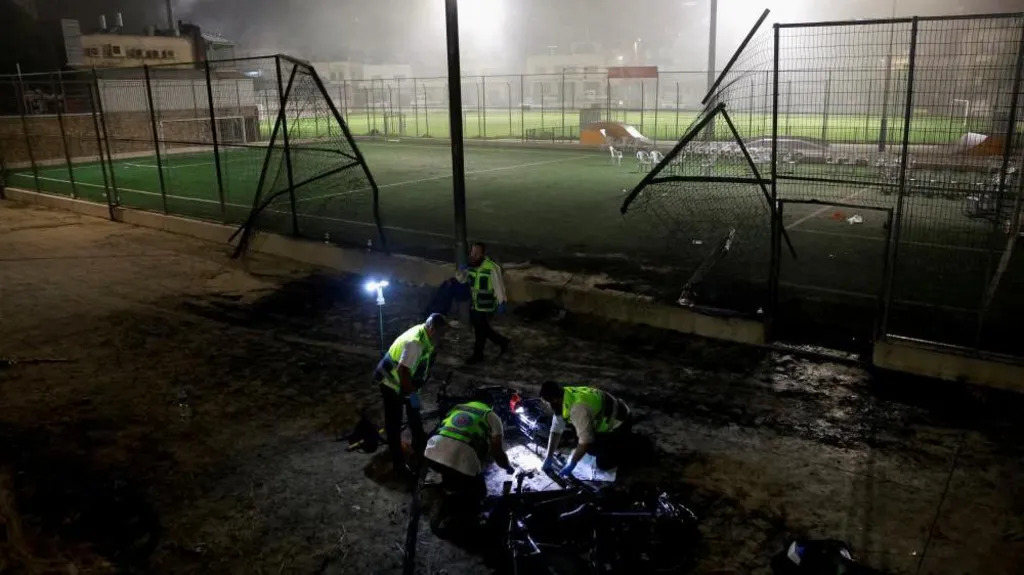
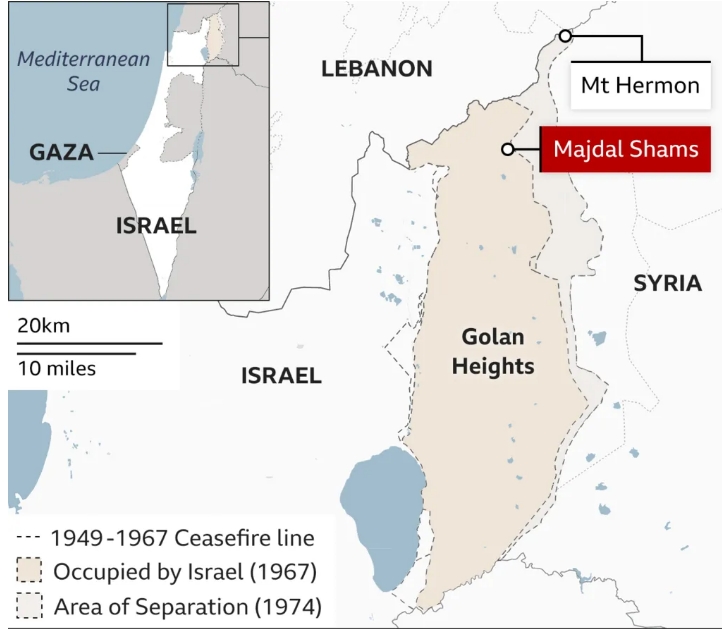
Conclusion
The rocket strike on the football pitch in Majdal Shams has underscored the deep-seated tensions and violence that characterize the region. The immediate loss of young lives, coupled with the retaliatory strikes and international reactions, highlights the fragile nature of peace in the area.
As the situation continues to evolve, the need for de-escalation and diplomatic efforts remains critical. The human cost of the violence and the broader geopolitical implications of the conflict reflect the complexity of the issues at hand. For now, the community in Majdal Shams and the broader region faces an uncertain future, with hopes for stability and peace amid ongoing turmoil.


